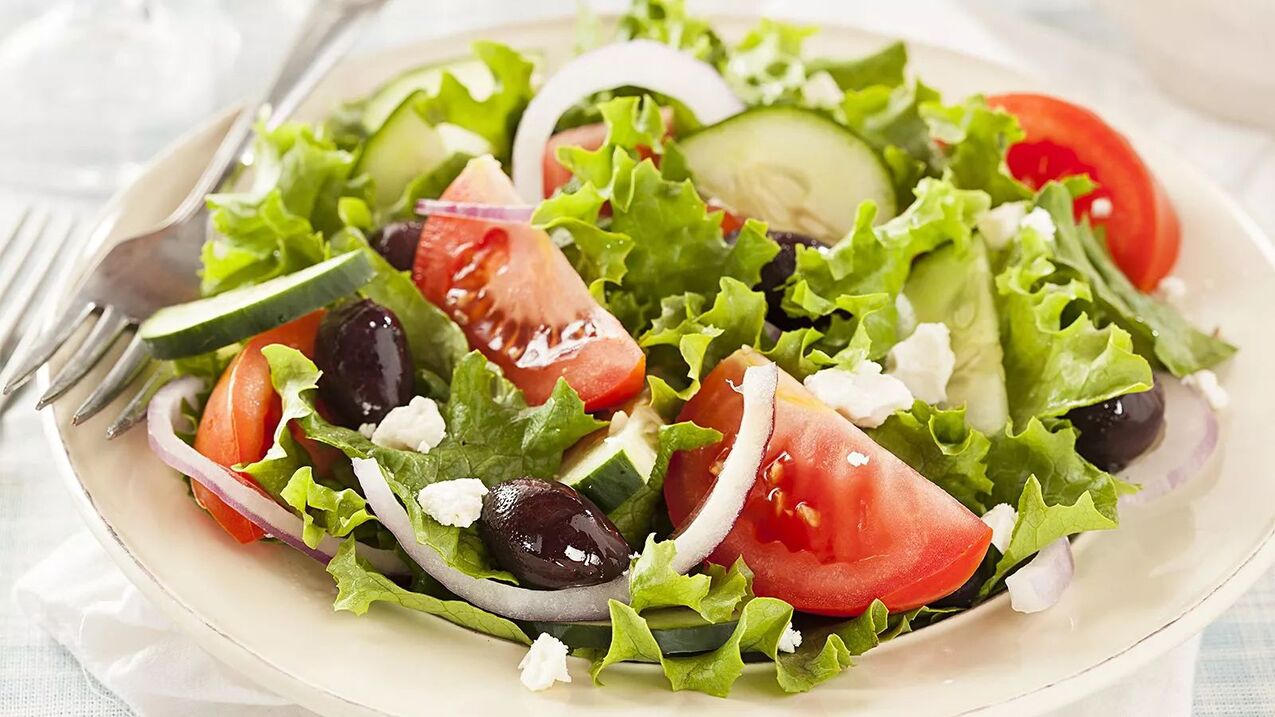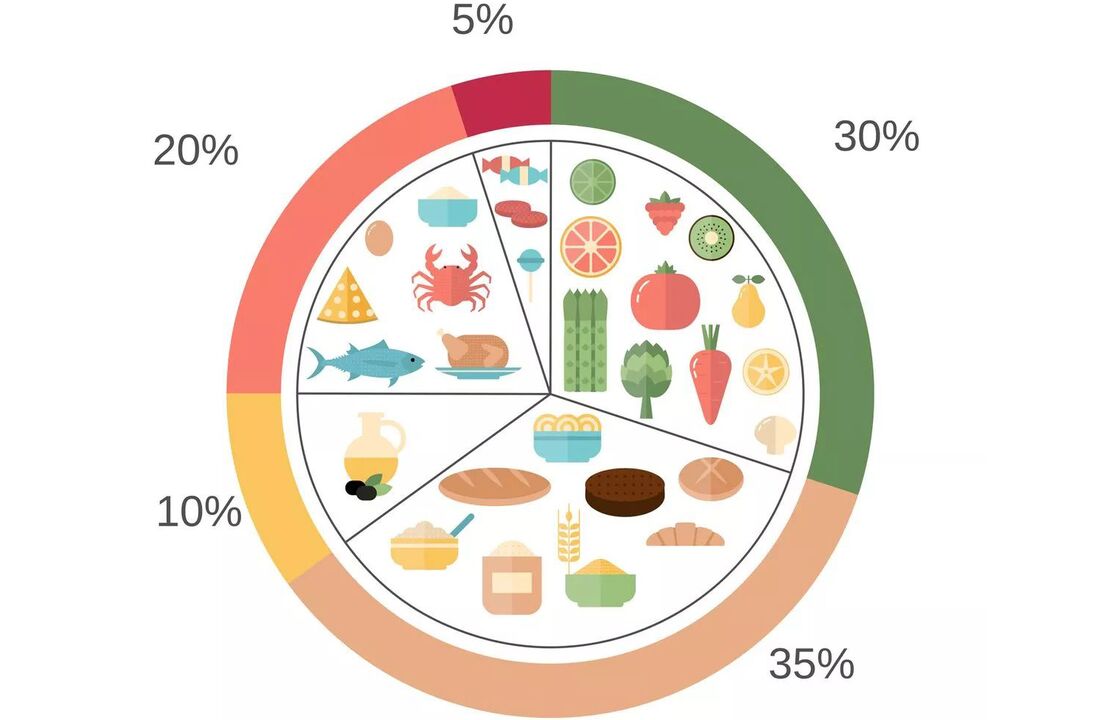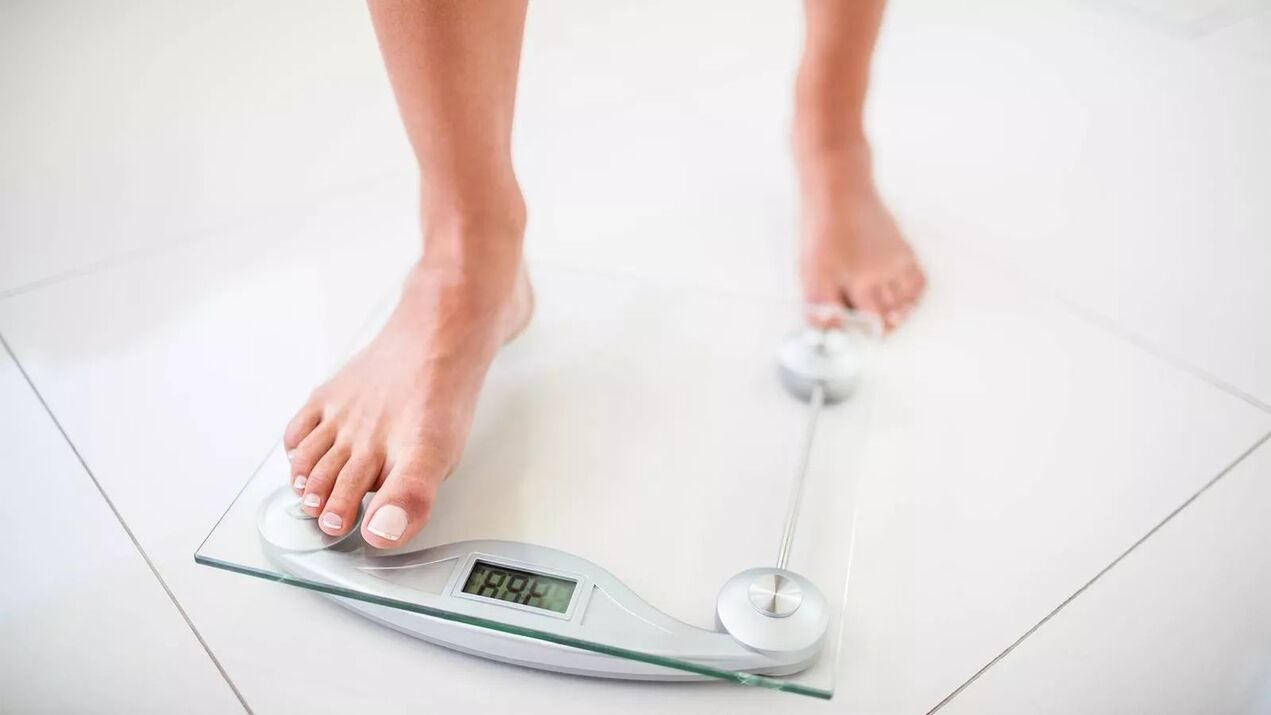The Mediterranean diet is one of the healthiest and most rational nutritional systems. This is a set of eating habits that trigger metabolism, help the body function properly and gradually get rid of extra pounds. With this diet you will not lose 5 kg in a week, but a rapid pace should not be the goal, otherwise you can easily harm the body. At some point there will be a failure, a metabolism setback - and you will gain more pounds than you planned to lose.
The basic rules of the Mediterranean diet: eat healthy foods, eat in small portions. The diet is based on plant foods rich in fiber and protein. It is important to drink plenty of water: 6 to 8 glasses per day. And be sure to exercise - it's an important part of the diet.
Mediterranean diet: what you can eat – allowed foods
Products that make up the diet:
- Fresh vegetables:tomatoes, cucumbers, broccoli, cauliflower, zucchini, eggplant, spinach, onions, potatoes, carrots;
- Fruits and berries:seasonal;
- Nuts and seeds:almonds, walnuts, hazelnuts, cashews, pumpkin and sunflower seeds;
- Legumes and cereals:beans, peas, lentils, chickpeas, oats, brown rice, corn, buckwheat, whole grain bread, durum wheat pasta;

- Fish and seafood:salmon, sardines, trout, tuna, mackerel, shrimp, oysters, mussels;
- Bird:chicken, duck, turkey;
- Dairy products:cheese, low-fat cottage cheese, Greek yogurt;
- Herbs and spices:garlic, basil, mint, rosemary, sage, cinnamon, turmeric, pepper;
- Healthy Fats:unrefined olive oil, olives, avocados;
- Red wine:a glass once a week.

When planning your diet, you should adhere to the following proportions:
- 60% carbohydrates;
- 30% fat;
- 10% protein.
What you can't eat on the Mediterranean diet - prohibited foods
Another plus of the diet: it is not forbidden to eat foods other than those to which an allergic reaction is possible. But to obtain results, you must reduce or eliminate the consumption of chemical compounds: sugar, wheat flour, processed foods, refined oil, alcohol, soda, fast food, chocolate, ice cream, sausages, sweet bars, desserts, etc.
Red meat is allowed up to four times a month, eggs up to four times a week.

Mediterranean diet menu for 7 days
Monday
Breakfast:slice of wholemeal bread, tomatoes, mozzarella;
Dinner:baked meat, salad, grapefruit;
Snack:fruit salad;
Dinner:wholemeal bread, cheese with nuts, orange.
Tuesday
Breakfast:berry muesli and Greek yogurt;
Dinner:100 grams of baked fish, durum wheat pasta;
Snack:cottage cheese casserole, tea;
Dinner:fish cutlets, buckwheat salad, tomatoes and herbs, a glass of dry red wine.
Wednesday
Breakfast:cottage cheese casserole with berries and coffee;
Dinner:seafood soup, a few slices of wholemeal bread;
Snack: fruit salad with Greek yogurt;
Dinner:baked turkey with vegetable stew.
THURSDAY
Breakfast:omelette with vegetables, tomatoes and olives;
Dinner:baked fish and bulgur with peas;
Snack:yogurt or a few pieces of dried apricots;
Dinner:a glass of kefir and a casserole of low-fat cottage cheese.
Friday
Breakfast:millet porridge in vegetable milk with pumpkin and raisins, apple;
Dinner:vegetable soup, eggplant compote with garlic and herbs;
Snack:sandwich made from bran bread with cottage cheese, sugar-free tea;
Dinner:baked white fish with tomatoes, zucchini compote with carrots.

SATURDAY
Breakfast:millet porridge in diluted milk with pumpkin and raisins, apple;
Dinner:vegetable soup, eggplant compote with garlic and herbs;
Dinner:baked white fish with tomatoes, zucchini compote with carrots.
Sunday
Breakfast:two-egg and pepper omelette;
Dinner:baked white fish with tomatoes, zucchini compote with carrots;
Dinner:a glass of kefir, cottage cheese with honey.
Contraindications
There are no serious contraindications, except for individual intolerance to the products. Food contains healthy substances necessary for the proper functioning of the body.

Advantages and disadvantages of the Mediterranean diet
A fact that many consider a disadvantage: slow weight loss. But it is precisely this diet that teaches you to eat healthily without breakdowns and worries that your favorite foods are prohibited. This diet becomes a way of life, metabolic problems are alleviated and weight reaches the desired level.

If you like sweets or foods that are hard to give up, cut them out gradually. Every morning after breakfast we drank tea with sweets - do it every other day, eating no more than two sweets. Then have morning snacks twice a week and clean up completely. You will reduce the daily dose of sugar, the urge to binge will disappear and the body will perceive the situation without stress.
The diet has many advantages: it consists of a large amount of fresh fruits, fish, olive oil, which, in combination with an active lifestyle, have a positive effect on health.
Research shows that this type of diet reduces the risk of heart disease and cancer. Dieters are less likely to be overweight, high blood pressure and diabetes. The risk of Alzheimer's disease also decreases. The strong medical effect is explained by the presence of a large number of healthy foods in the diet: fresh fruits and vegetables, fish and seafood, butter and nuts, and a small amount of red wine.

If a person losing weight follows the rules and proportions, the diet becomes beneficial for the heart and blood vessels. This helps prevent hypertension, atherosclerosis, reduce bad cholesterol and increase good cholesterol, prevent excessive blood clots, as well as the development of atherosclerosis, improve blood circulation and strengthenBlood vessels. The dietary fibers contained in the composition regulate blood sugar levels. Additionally: the functioning of the thyroid gland and metabolic processes improve.





















